|
In 2000, the U.S. Supreme Court in Hill v. Colorado found that restrictions on speech-related conduct outside abortion clinics was content-neutral and thus subject only to intermediate scrutiny, a lesser degree of protection. Since that time, lower courts have upheld similar state and local restrictions on speech based on this binding precedent – and despite a raft of subsequent cases that call Hill’s reasoning into question.
The recent case of Vitagliano v. County of Westchester is a perfect exemple of these ongoing challenges. It is now up for potential review before the Court. It offers a good opportunity to overturn Hill and the unconstitutional legal trend it originated. Here are the facts of the case: Debra Vitagliano is a devout Catholic whose mission is to offer compassionate counsel to women seeking abortions at the last minute, when such counsel might be most effective. Westchester County, like many jurisdictions before it, passed a law establishing a 100-foot buffer zone around reproductive health care facilities (encompassing public sidewalks), prohibiting anyone looking to offer such assistance from getting within eight feet of another person unless they receive explicit consent. Critics of the Hill decision, including 14 states that recently filed an amicus brief, argue that Hill misapplied the legal test for determining whether a speech restriction is content-based. Specifically, they argue that the Court erroneously relied on Colorado’s references to “access” and “privacy” as justification for the statute’s purported neutrality. Since 2000, the Supreme Court has conspicuously refrained from drawing on Hill’s reasoning, and in Dobbs v. Jackson went so far as to call it a distortion of First Amendment doctrines. Whenever the government passes a speech restriction that is obviously content-based (as it is here) it must be looked at through the lens of strict scrutiny. It must be narrowly tailored to serve a compelling government interest. This means a government cannot simply abridge its citizens’ First Amendment rights because of some particular policy preference – for example, in another context, the idea that protest should not be allowed outside military recruitment facilities because it discourages young people from enlisting. It’s clear that Hill was a policy decision, and while one may agree with its intent, it also opened the door to overstepping when it comes to restricting speech in public places. The sidewalk has long been held to be a public forum. In fact, it’s arguably the place where speech about contentious political issues most belongs. As the Supreme Court wrote in McCullen v. Coakley, sidewalk speech reflects the First Amendment’s goal to “preserve an uninhibited marketplace of ideas in which truth will ultimately prevail.” Criminalizing certain speech on public sidewalks endangers that goal. And preventing Debra Vitagliano from engaging in peaceable, non-violent conversation amounts to the kind of overbreadth that seals the deal when it comes to a law’s unconstitutionality, particularly when laws already exist prohibiting assault, trespass, and blocking clinical access. Whatever your views on abortion, Hill was a bad decision that should be overturned. To quote First Amendment scholar and Harvard professor Lawrence Tribe, the case was “slam-dunk simple.” Its ruling: “slam-dunk wrong.” The French concept of secularism – or laïcité – derives from the Enlightenment and the culminating revolutionary event that expelled, once and for all in France, the divine right of the king. Much like America’s founding principle of separation of church and state, laïcité discourages the commingling of religion and government, though the French take it a bit further (okay, a lot further). Today, even public displays of faith are frowned upon in France. The way France enforces this philosophy today has a lot to teach Americans about the value of the First Amendment and its guarantee of the free exercise of religion.
In 2004, France banned students from wearing or displaying overtly religious symbols in schools – including crucifixes, yarmulkes, and hijabs. Now, French education minister Gabriel Attal has announced that girls in state schools will no longer be permitted to wear abayas – long, robe-like garments favored by Muslim women that typically cover the body, but not the head and face, or feet and hands. Minister Attal said: “When you walk into a classroom, you shouldn’t be able to identify the pupils’ religion just by looking at them.” Attal argues that wearing abayas in school violates laïcité, which was codified into French law in 1905. Abayas are not, strictly speaking, religious. It’s true that it is Muslim women who tend to wear the garments, but it’s certainly not a prescribed uniform. Long dresses have long been popular across cultures. How do you enforce a ban against fashion? (France’s previous education minister, Pap Ndiaye, declined to ban abayas, noting the risk of having to “publish endless catalogues to specify the length of dresses.”) More to the point, even if abayas were overtly religious like a crucifix, yarmulke, or hijab – what is the danger in allowing students to express their religious identity? In the United States, most see nothing wrong with such religious expressions. Whether it’s a headscarf or a yarmulke or a bolo tie knotted in the shape of a cross, our Constitution protects the free exercise of religion. Period. But we’ve seen troubling signs in recent years of a desire among some of our fellow Americans to import the thinking behind laïcité – prohibiting people of faith from participating in public education at all. In Arizona, an elementary school district attempted to ban student-teachers from Arizona Christian University based solely on their religious affiliation. In Minnesota, the state legislature blocked religious schools from offering college credit courses to high schoolers. At Bremerton High School in Washington, the school board fired a football coach for daring to pray after games on the playing field. The ACU students, at least, were eventually vindicated (Minnesota remains pending). As for the Bremerton case, no less an authority than the Supreme Court of the United States weighed in, making it clear. In Kennedy v. Bremerton, the Court declared: “Both the Free Exercise and Free Speech Clauses of the First Amendment protect expressions like Mr. Kennedy’s. Nor does a proper understanding of the Amendment’s Establishment Clause require the government to single out private religious speech for special disfavor. The Constitution and the best of our traditions counsel mutual respect and tolerance, not censorship and suppression, for religious and nonreligious views alike.” The Court went on to underline that just because religious speech by teachers or coaches may occur within the confines of a government school, that does not necessarily make it “government speech subject to government control.” Writing for the Court, Justice Gorsuch added, “On this understanding, a school could fire a Muslim teacher for wearing a headscarf in the classroom or prohibit a Christian aide from praying quietly over her lunch in the cafeteria.” What we continue to carve out in America – through constitutionally guided policy and sound jurisprudence – is a balance between respecting religion and prohibiting the state establishment or endorsement of one. The French government’s atavistic rejection of even a whiff of the religious takes institutional secularism to troubling and prejudicial extremes. Attal, however, is unlikely to agree. “Secularism,” he said, “means the freedom to emancipate oneself through school.” The same freedom might be afforded to those who wish to emancipate themselves from censorship – and religious discrimination. The Fourth Circuit Court of Appeals recently handed down a disappointing ruling in an important speech case, holding that a college professor who has been the target of escalating retaliation by his university for criticizing his department is not protected by the First Amendment.
North Carolina State’s Stephen Porter, a tenured professor on the NC State faculty since 2011, first got into trouble with higher-ups in 2016 when he objected to adding a question about “diversity” to student course evaluations. What followed was a mounting series of attempts by the university to rid themselves of Porter and to stifle dissent. Porter was accused of “bullying” the person who had proposed adding the question. Later, in 2018, after Porter sent an email linking an Inside Higher Ed article that alleged an NC State faculty search was slanted to favor a minority applicant, Porter was told the administration would “find ways to exclude [Porter] from critical aspects of his job.” In 2019, Porter received another email that stated that students in the department were having strong reactions to his criticism of the Association of the Study of Higher Education (ASHE). Finally, on July 5, 2019, Porter received notice that he was being removed from the Higher Education Program Area – a valued post – because the faculty could not make progress toward resolving issues with him there. After this incident and other punishments, Porter filed suit against NC State in 2021. Porter’s case was first dismissed by the district court judge, who argued he had no legal grounds. Now, the Fourth Circuit has upheld the district court’s ruling, holding that Porter’s statements were not protected by the First Amendment because they were made in his capacity as an NC State employee, nor was his “bullying” protected because it was “an unprofessional attack on a colleague.” Enter Judge Julius Richardson, the lone dissenter in this case. In his dissent, Judge Richardson persuasively argues that Porter’s comments on the ASHE are protected by the First Amendment. Porter could have remained silent about the diversity question and about the drift of ASHE into ideological activism. Porter was not required to submit his opinion as part of his job, and, therefore, he was speaking as a citizen and is protected under the First Amendment. Furthermore, Judge Richardson took issue with the majority’s assertion that because the school did not act against Porter for more than six months after the last of his controversial statements, he had not clearly established that his speech was the reason for the punitive actions taken against him. Judge Richardson argues that obviously NC State had for years been ratcheting up its threats against Porter because his statements frustrated the department’s activist objectives. It strains credulity to think that Porter’s criticism of the department wasn’t the motivating reason. In the last instance, however, Judge Richardson noted that “bullying” does not push Porter’s speech outside of First Amendment protection. Even if that characterization were true, the First Amendment would be toothless if it didn’t cover offensive speech. (Porter did in one conversation use a four-letter word.) Contrast this treatment to Georgetown University’s acceptance of a professor who tweeted that sitting Supreme Court Justices should suffer miserable deaths and have their corpses castrated. We commend Judge Richardson for his valiant stand in defense of the First Amendment. The issues at stake make this case ripe for SCOTUS review. If Porter’s case is left as-is, his situation would provide a dangerous roadmap for censorious administrators around the country on how to micromanage dissenting faculty until they either quit in frustration or can be fired. We look forward to further developments in this case. In April, Protect The 1st reported on two pending cases before the Supreme Court, O’Connor-Ratcliff v. Garnier and Lindke v. Freed, addressing the question of what constitutes a public forum on Facebook. In both lawsuits, public officials blocked criticism from constituents on their social media sites; in both instances, the constituents sued.
Now, the U.S. Supreme Court is set to deliberate the urgent question: When does a personal account become public? This is the first time the Court will address the difference between public and private fora against the backdrop of the digital age. In our Protect The First Foundation amicus brief in O’Connor-Ratcliff, we write: “The state action question in this case implicates two vital First Amendment rights: that of citizens to access government fora, and that of public officials to control with whom and how they communicate when they speak in their private capacities. As this case demonstrates, those rights are in tension when it is not immediately apparent whether a government representative is operating a social media account in her public or private capacity.” The petitioners argue that they should be able to block constituents from their social media profiles, on which they discussed government business, as long as their actions aren’t affirmatively required as one of their government duties and they don’t explicitly invoke state authority. In short, they wish to summon their own First Amendment rights to silence their critics in a public forum. For many years now, Members of Congress have segregated their personal and public accounts. They are correct in doing so, and this situation shows why. The legal issue is at what point does a public official’s actions constitute “state action.” And here, the officials’ social media pages are draped in their status as public servants – even though they began as personal campaign pages. With great regularity, they post about official government business and use their accounts to facilitate their government duties. As such, they cannot then claim that when they operate those accounts they are private actors. Government officials, like everyone else, have First Amendment rights. But they cannot have their cake and eat it too by speaking with the authority of government while erasing the access of their critics to that speech. The fact is that we must – now – delineate the limits and boundaries of social media’s power in the context of public service. If you are a public official, you cannot – must not – be able to silence your critics in a public forum under the auspices of your own First Amendment rights. Sorry. Sometimes you just have to take the heat. When Will States Finally Adhere to Supreme Court Guidance on Religious Schools? Two Catholic parishes recently filed a lawsuit seeking to challenge a Colorado law that excludes faith-based preschools from participating in the state’s “universal” preschool funding program. Created in 2022, Colorado’s Universal Preschool Program was designed to provide all children access to a free, quality preschool education. Schools are ineligible to participate, however, if they prioritize the admission of families who share their faith or have religious expectations of their teachers.
Both stipulations are obviously essential components of faith-based education. Yet the Colorado law would unfairly force religious parents to choose between paying out of pocket for the cost of faith-based preschool or receiving a free preschool education at any secular private school. The law amounts to a legislated burden on the state’s millions of religious families and their free exercise of religion. The lawsuit, St. Mary Catholic Parish v. Roy, could be taken as a hopeful response to the U.S. Supreme Court’s recent receptivity to religious liberty arguments. This lawsuit has some wind at its back, coming on the heels of successful litigation challenging similarly restrictive laws in other states. In 2022, the Supreme Court ruled 6-3 in Carson v. Makin that parents who wish to send their children to religious schools in Maine have the right to enjoy the same access to state-sponsored tuition assistance programs as parents sending their children to secular private schools. Maine had defended its exclusion of religious schools by claiming it did not discriminate against religious schools per se, only schools with “sectarian” religious teachings and practices. The Court saw through Maine’s illogical standard – that a school could be Catholic in name but could not hold a Bible class or administer communion. In 2017 in Trinity Lutheran Church of Columbia, Inc., v. Comer, the Court struck down a Missouri program that excluded religious organizations from a grant for nonprofits that installed cushioning playground surfaces made from recycled rubber tires. In 2020, in Espinoza v. Montana Dep’t of Revenue, the Supreme Court held that the Montana Constitution’s “no-aid” provision to a state program providing tuition assistance to parents discriminated against religious schools and families. Despite a clear line of Court precedent invalidating restrictions on religious schools, state governments continue to plug their ears to Court rulings. Earlier this year, a lawsuit in California had to be filed challenging a state law that prohibits federal and state special education funding for disabled children at religious private schools while allowing it for secular private schools. The case, Loffman v. California Department of Education, seeks to argue that such a restriction is a violation of the First and Fourteenth Amendments. And in Minnesota, the state legislature recently passed a bill banning Christian colleges and universities from participating in the state’s Post-Secondary Enrollment Options (PSEO) program. The program allows high school students to earn college credit at the institution of their choice. The law effectively bans some of the largest providers which account for over 20 percent of PSEO enrollment hours. Why does the Court have to further reiterate its position that restrictions on religious education providers or religious families will not be tolerated? Protect The 1st looks forward to the day when the Court’s rulings will be heard and respected in the states. “Their Faith Is Not Supportive” The latest insult to religious liberty comes from a case in the Commonwealth of Massachusetts, where state agencies have determined that devout religious families should not foster children. The state upholds this position despite an ongoing foster care crisis resulting in more than 1,500 vulnerable minors living unplaced, often in state agencies and even in hospital rooms for indeterminate periods.
By all accounts, Mike and Kitty Burke are an upstanding couple. Mike is an Iraq war veteran and Kitty has worked with special-needs children. Both are practicing Catholics, regularly attend church and perform as musicians during services. The pair long wanted to be parents but, like so many others, found themselves unable to conceive. Willing to open their home to children of all racial backgrounds and needs, they contacted the Massachusetts Department of Children and Families to begin the foster parent application process. In October 2022, the Burkes underwent home interviews – a standard procedure in which a License and Training Social Worker assesses whether a family can provide “loving child-specific environments while helping to facilitate permanency for the child through reunification or adoption.” In these circumstances, a social worker subjectively evaluates a prospective parent’s fitness based on DCF’s “Standards for Licensure as a Foster/Pre-adoptive Parent.” Following that assessment, a License Review Team makes a final licensure decision based on its own understanding of a family’s fitness. According to court documents, the Burkes’ interview focused disproportionately on their religious beliefs about gender and sexuality. The couple made it clear – they would love and support a child under their care regardless of that child’s sexual orientation or gender identity. They also maintained they would continue to uphold their personal beliefs on marriage and sexuality as traditionally understood by the Catholic Church. Their response apparently didn’t satisfy the social worker. As she wrote in her report, “their faith is not supportive and neither are they.” The DCF subsequently denied the Burkes’ application, destroying the couple’s hopes of becoming foster parents and helping children who desperately need a home instead of a hospital bed. Such pointless government attacks on conventional religions are increasingly common. These attacks continue despite the fact that the underlying issue is well-trodden ground in the courts. As recently as 2021, the U.S. Supreme Court held that Catholic charities cannot be excluded from state foster care systems on the basis of their beliefs. Massachusetts’ Foster Parent Bill of Rights prohibits the denial of prospective foster families on the basis of religion (protecting “prospective foster … parents during the application process” from discrimination “on the basis of religion”) – as do DCF’s own policies. Yet, the agency’s requirement that foster parents support and respect “a child’s sexual orientation or gender identity” has now been interpreted as an immutable ban against any religious person who holds traditional beliefs – be they Muslim, Orthodox Jew, Catholic, or Protestant – from becoming a foster parent. It’s a clear-cut violation of the Free Exercise Clause as well as First Amendment prohibitions against compelled speech. DCF’s social workers are free to have their own preferred views on gender and sexuality. They are free to place children in homes with parents with more progressive views. But they are constitutionally and statutorily prohibited from requiring people of faith to choose between violating their beliefs or losing access to a program to do good. Will Outrage Prompt Congress to Pass the PRESS Act? National outrage over a rural Kansas police department’s ransacking of a newspaper, the Marion County Record, will almost certainly result in a massive legal reckoning. But will its larger implications prompt Congress to move to protect journalists from similar interference by federal authorities?
Here’s the background: On Friday, the Marion police department launched simultaneous raids on the homes of a reporter, an 80-year-old councilwoman, and The Record’s 98-year-old co-owner, Joan Meyer, mother of editor Eric Meyer. According to the account in The Record, the trauma left Joan Meyer “stressed beyond her limits,” prompting her to quit eating, and to collapse and die the next day. And for what? The Marion police launched this extreme execution of a search warrant to track down an informant who revealed a letter from a state agency about a local restauranteur’s DUI to a Record reporter. The newspaper ultimately chose not to print this story out of concern that the informant acted maliciously in revealing the restauranteur’s personal information. “The police confiscation of virtually all of the equipment of a 4,000-circulation newspaper will be one for the textbooks in both law and journalism schools,” said Rick Boucher, Senior Policy Advisor to Protect The 1st and a former U.S. Representative from Virginia and Member of the House Judiciary Committee. “The seizure of a newsroom is an outrage that demonstrates that absent proper legal restraints, and sometimes even with them, some in officialdom will use a petty excuse to pry open a reporter’s notebooks. “These events triggered a raid in which the police seized computers, servers and snatched cellphones,” he said. “The Record reports that one reporter’s hand was reinjured by having her phone forcibly jerked out of her hand. The police took so much equipment that the staff is scrambling to find a way to publish the newspaper’s next edition. “The police did not just raid The Record, they potentially put it out of print. And as a result, the police – and the politicians they work for – now have ready access to vast amounts of confidential interviews, official contacts, and other investigations that any local paper customarily conducts into city hall.” Boucher noted that the raid is likely a violation of the federal Privacy Protection Act of 1980, opening the door to significant liability for the town. “The larger takeaway from this event is the appetite that some in authority have to bully a sometimes nettlesome press,” Boucher said. “Kansas, like most states, has a shield law that protects journalists and their sources,” he said. “Rather than taking the extreme step of raiding the newspaper’s office and seizing all of its records, if the police had probable cause to believe that stolen property was in the possession of the paper, a subpoena for the record in question would have put in motion a court proceeding at which a judge could have decided whether the Kansas shield law applies. It will be instructive to read the probable cause affidavit behind the search warrant that was issued.” Boucher noted that the federal government, with its huge apparatus of prosecutors and surveillance, is restrained by no such law. While lawmakers and journalists in Kansas sort out how to avoid events like this, Congress should take this opportunity to pass the Protect Reporters from Exploitive State Spying (PRESS) Act to give journalists at least some protection from official intimidation. The PRESS Act passed the U.S. House unanimously last year and was recently favorably reported again without dissent by the House Judiciary Committee. “The House should schedule a full vote when it returns in September,” Boucher said. “Action in the Senate should swiftly follow.” Should Salesforce.com be held liable as a participant in sex trafficking because it sold customer relationship management software to the now-defunct Backpage.com?
Such a ruling would run smack into Twitter v. Taamneh, in which the U.S. Supreme Court made it clear that despite the fact that ISIS terrorists used that popular social media platform to communicate, Twitter could not be held liable as an aider and abettor of terrorism. Holding Salesforce liable for Backpage’s misdeeds would also contradict rulings with similar principles from the 9th Circuit Court of Appeals and the DC Circuit Court of Appeals. These courts, writes Mike Masnick of TechDirt, found that it “would be ridiculous to hold out every service provider for liability just because a drug trafficking, sex trafficking, or terrorist organization used those tools to improve their reach.” But the Seventh Circuit Court of Appeals found otherwise. Backpage was a classified advertising site that was shuttered and began a long saga in the courts after being hit with 100 counts involving prostitution and sex trafficking in 2018. Salesforce, according to the Seventh Circuit, should have somehow known as early as 2013 that it was involved in sex trafficking by selling operational software to this client. Every decent person deplores sex trafficking, just as every decent person condemns terrorism. But it is bad logic and morally confused to extend liability for sex trafficking from bad actors to vendors – people lacking in investigative skills and precognitive ability to see how the law will treat a customer years later. There are clear First Amendment implications in conflating the speech and actions of a customer with those of a vendor. We agree with Masnick – “it would be nice if the Supreme Court told the 7th Circuit to knock it off.” Jeff Kosseff, associate professor of cybersecurity law at the U.S. Naval Academy, titled his acclaimed book about Section 230, The Twenty-Six Words that Created the Internet. Those exact words:
No provider or user of an interactive computer service shall be treated as the publisher or speaker of any information provided by another information content provider. Kosseff did not exaggerate. This statute, part of the Communications Decency Act of 1996, protects platforms and websites from any liability contained in third-party posts. Section 230 not only protects Facebook or Twitter (now X) from being sued for libelous posts made by its users, it also protects myriad web-based businesses – from Angi (formerly Angie’s List), to Rate My Professors, to a thousand sites that run reviews of hotels, restaurants, and businesses of all sorts. Without Section 230, a wide swath of U.S. digital commerce would cease to exist overnight. And yet, Justice Clarence Thomas hit a nerve in 2021 when he mused in an opinion that the “right to cut off speech lies most powerfully in the hands of private digital platforms. The extent to which that power matters for purposes of the First Amendment and the extent to which that power could lawfully be modified raise interesting and important questions.” Such questions certainly seemed interesting to lawmakers in Florida and Texas. Texas passed a law that bars companies from removing posts based on a poster’s political ideology. This law was upheld last year by the Fifth Circuit. The Florida law, which would prohibit social media from removing the posts of political candidates, was stricken last year by the Eleventh Circuit. At the time, we wrote that: Cert bait doesn’t get more appealing than this. Consider: A split between federal circuits. Laws that would protect free expression in the marketplace of ideas while simultaneously curtailing the speech rights of unpopular companies. Two similar laws with differences governing the moderation of political speech. The petition for SCOTUS reviewing the Texas and Florida laws practically writes itself. The First Amendment is aimed only at the government. It protects the editorial decisions of social media companies while forbidding government control of speech. But being kicked off X, Facebook, Google, and Amazon would certainly feel like being censored. And there may well be First Amendment implications whenever federal agencies are secretly involved in content management decisions. But if Section 230 is overthrown, what will replace it? In the face of the current circuit split, legal principles get tangled up like fishing lines on a tourist boat. As Kosseff notes in Wired, Americans living under the Fifth Circuit may see drastic alteration of the regulation of internet companies. In the Eleventh Circuit, Section 230 prevails as it is. The resulting confusion is why it is likely the Supreme Court will have to take up a challenge from NetChoice, which represents tech companies. If the Court doesn’t cut this Gordian knot, we could wind up with a Red State internet and a Blue State internet. While the judiciary sorts out its thinking, Congress should act. Protect The 1st continues to press policymakers to look at principles similar to those of the bipartisan Platform Accountability and Consumer Transparency Act, which would require big social media companies to offer clear standards and due process for those who post in exchange for the liability protections of Section 230. Mahmoud v. McKnight: Maryland County Runs Roughshod Over Parental Rights and Freedom of Religion8/7/2023
At public schools in Montgomery County, Maryland, parents and students can opt out of Halloween, Valentine’s Day, and even birthday celebrations based on religious grounds. What they cannot opt out of is instruction in queer and transgender ideology, even if their First Amendment-protected, faith-based beliefs run contrary to progressive mores.
In the fall of 2022, following the results of an “Antiracist System Audit” commissioned the prior year, the Montgomery County Board of Education introduced 22 new “LGBTQ+-inclusive texts” for use in pre-K through eighth grade classrooms. One book approved for four-year-olds is Pride Puppy, a Where’s Waldo?-esque puzzle book that encourages children to search for images of drag queens, leather, lip rings and underwear based on letters of the alphabet. Other approved works focus on gender transition and same-sex infatuation. Born Ready: The True Story of a Boy Named Penelope, which is approved for fifth graders, and emphasizes a child’s agency in the decision to transition, arguing that such choices don’t have to “make sense.” In the State of Maryland, instruction on family life and sex education requires parental notification and the ability to opt out. It’s the same story across 32 other states that either require an opt-out plan or an affirmative decision to opt into such teachings. The Montgomery County School Board’s own guidelines require the same, even allowing for “excus[ing] students who do not want to participate” in “activities” that “may be viewed by others as having religious overtones,” including “birthdays or other occasions that many may consider to be secular, such as Halloween and Valentine’s Day.” At first, following introduction of the new curriculum, requests to opt out were honored. Then, the Board issued a statement changing course: “[T]here is as an expectation that teachers utilize these inclusive lessons and texts with all students. ... Students and families may not choose to opt out of engaging with any instructional materials, other than ‘Family Life and Human Sexuality Unit of Instruction’ which is specifically permitted by Maryland law. As such, teachers will not send home letters to inform families when inclusive books are read in the future.” Just like that, every parent of a school-aged child in Montgomery County was denied the right to decide for themselves when to introduce their children to issues of gender and sexuality. There are more than 70,000 school-aged children in Montgomery County. Concerned parents have since organized under the banner of Kids First. A lawsuit filed in the U.S. District Court for the District of Maryland (Mahmoud v. McKnight) on behalf of that association – as well as individual parents of varying religious backgrounds – alleges violations of Maryland state law, the Free Exercise Clause of the First Amendment, and of substantive due process guaranteed by the Fourteenth Amendment. The lawsuit seeks injunctive relief to reinstate the opt-out plan. At Protect The 1st, we believe that it is the mission of schools to educate children, but it is the job of parents to raise them. Progressive parents who want to teach their children these perspectives are free to do so. But forcing this curriculum on families shows blatant disrespect for pluralism and the role of religion in many families. This case is particularly salient because it involves plaintiffs of diverse religious beliefs united under a common cause. Too often, such controversies are seen by the media through the lens of conservative Christianity, when it’s also the case that Muslims and those of other religious backgrounds often hold conservative, faith-based views on gender and sexuality. As for the merits of the case, Maryland law plainly states that “The local school system shall provide an opportunity for parents/guardians to view instructional materials to be used in the teaching of family life and human sexuality objectives.” It further requires “policies, guidelines, and/or procedures for student opt-out regarding instruction related to family life and human sexuality objectives.” The Board’s interpretation that these books don’t implicate family life and human sexuality is plainly preposterous – just as one board member’s contention that religious belief fosters hate is patently offensive. What’s more, long-standing precedent recognizes “the rights of parents to direct ‘the religious upbringing’ of their children.” A critical case is Wisconsin v. Yoder, in which the U.S. Supreme Court found that an Amish family’s right to the free exercise of religion outweighed Wisconsin’s interest in compelling school attendance beyond eighth grade. Specifically, that case noted that schools are not “empowered ... to ‘save’ a child from himself or his [religious] parents” by imposing “compulsory” education to “influence ... the religious future of the child.” Such precedent tells us that the Montgomery County School Board’s position is unlikely to survive a strict scrutiny analysis. We also know that schools do best when they focus on quality instruction on primary subjects and skills. Leave the values to parents. If the State of North Carolina has its way, the U.S. Supreme Court could soon hear its first case addressing the constitutionality of so-called “ag-gag” laws, statutes that aim to punish whistleblowers and undercover activists.
North Carolina passed the Property Protection Act (PPA) in 2015, seeking to codify a ruling emanating from a late-1990s conflict between Food Lion and ABC News in which two journalists posed as employees and covertly recorded unsafe food-handling practices. Food Lion sued the network, and the Fourth Circuit Court of Appeals eventually found in the supermarket’s favor. The legislature’s 2015 codification of that ruling, in theory, creates an employee disloyalty cause of action and allows for damages resulting from work stoppage. It’s a clever framing, but the reality is that the PPA is a little more than an unconstitutional “ag-gag” law designed to shield North Carolina’s large-scale farming industry from journalistic scrutiny. That’s certainly what PETA – which brought the case – believes. And two prominent federal courts have now sided with them. PETA’s argument is that the PPA unconstitutionally burdens its investigative efforts. Specifically, the organization takes issue with a provision in the law that allows employers to sue for damages any employee who “without authorization records images or sound occurring within” the nonpublic areas of the employer’s private property “and uses the recording to breach the person’s duty of loyalty to the employer.” (Three other provisions are also at issue, each prohibiting similar conduct.) A federal district in North Carolina agreed with PETA, striking down the law as a content-based restriction on speech. The Fourth Circuit upheld that ruling insofar as it pertained to newsgathering efforts by PETA and similar animal welfare groups but did not rule on the law’s constitutionality applied to other situations. North Carolina subsequently filed a certiorari petition before the U.S. Supreme Court. What the State of North Carolina is effectively asking the Supreme Court to do is create a new category of unprotected speech – information collected by an undercover investigation in non-public areas. From a policy standpoint, it’s anathema to the very notion of a free press. America’s venerable tradition of investigative journalism goes back centuries, and is exemplified by trailblazing reporters like Nellie Bly, who became an inmate at the Women’s Lunatic Asylum at Blackwell’s Island to expose deplorable conditions there. It continues today in the form of citizen journalists like Darnella Frazier, who received a Pulitzer Prize citation for recording the murder of George Floyd by a policeman in Minneapolis in 2020. The right to record is closely linked to investigative journalism, which is and must always be protected under the Constitution. Judge Henry Floyd of the Fourth Circuit perhaps put it best: “…while we agree that an employer could freely choose to deny entry to journalists who seek to secretly record its inner workings, it does not follow that a State can create ‘new categories of unprotected speech’ to punish those journalists. The First Amendment limits the government; the government does not limit the First Amendment.” Both the Ninth Circuit and Tenth Circuit have invalidated “ag-gag” laws as incompatible with First Amendment press protections. Eight of 11 “ag-gag” laws passed on the state level have been found unconstitutional. If the Supreme Court agrees to hear oral arguments in this case, the Court will find plenty of precedent. With perfect timing, Judge Christopher Cooper of the U.S. District Court in DC provided the U.S. Senate today with ample to reason to follow the example of the House and pass the PRESS Act. The judge seeks to compel CBS News senior correspondent Catherine Herridge to reveal her confidential source or sources for a news series she published when she was a journalist at Fox News.
Confidentiality is the lifeblood of a free press. From Watergate to Harvey Weinstein, confidential sources have helped journalists bring to light malfeasance and hidden crimes that otherwise would have continued. And a strong reporting culture is a counter to the growing surveillance state enabled by technology. That is why in September, 2022, the House unanimously passed the bipartisan Protect Reporters from Exploitive State Spying, or PRESS Act – and the House Judiciary Committee unanimously approved it again on July 19 of this year. This measure would bring the federal government up to speed with 49 states by shielding reporters from choosing between jail or ratting out whistleblowers and sources as ordered by a federal judge or prosecutor. The PRESS Act is reasonable legislation, allowing for exceptions in extreme cases. Protect The 1st supports Herridge and all journalists who face similar dilemmas. This is all the more reason why the House should again pass this bill and the U.S. Senate should take up the PRESS Act when Congress returns after August recess. Communities have the power to pass laws that protect vulnerable minors from clearly inappropriate material, even in cases where adults have a First Amendment right to view and distribute that material to each other. But such laws have to be precise in how they enforce restrictions. And, one would hope, they’d include solutions to actual problems – not just a response to political passions.
Plaintiffs before a federal court – including bookstores, libraries, and patrons of those establishments – take issue with two specific provisions in Arkansas’s Act 372. The first is Section 1, which creates misdemeanor criminal liability for librarians and booksellers, and even parents, who “[furnish] a harmful item to a minor.” The second is Section 5, which creates a process by which any citizen can challenge the appropriateness of any book in a state library according to local community standards, with final decision-making power in the hands of local county quorum courts or city councils. As the plaintiffs assert, Section 1 would result in either the widespread removal of books or an outright ban on young people under 18 from entering libraries or bookstores. Section 5, they argue, would allow vocal minorities to tell entire communities what they can and cannot read. In a remarkably restrained order and opinion, Judge Timothy L. Brooks found that the plaintiffs were likely to succeed on the merits of their case based on the overbreadth of Section 1 and the vagueness of Section 5. Regarding Section 1, Arkansas code defines “harmful to minors” as “any description, exhibition, presentation, or representation, in whatever form, of nudity, sexual conduct, sexual excitement, or sadomasochistic abuse” that lacks “serious literary, scientific, medical, artistic, or political value for minors” or would be deemed “inappropriate for minors” by the average adult, based on potentially restrictive local community standards. Factoring in the state’s very broad definition of “nudity,” it’s clear that Section 1 would result in the censorship of a vast swath of popular books, including many with only fleeting or insubstantial references to sexual conduct. It would certainly cover any book with even the most innocuous depiction of same-sex affection. Moreover, defense counsel candidly admitted in court that, under their interpretation of the law as written, any reading material deemed harmful for a five-year-old minor would also be deemed harmful for a 17-year-old minor, despite obvious differences between the two in maturity and comprehension of adult themes and issues. The U.S. Supreme Court addressed this issue in Virginia v. American Bookseller’s Association, Inc., suggesting that an interpretation of the term “harmful to minors” that includes speech protected for older minors would raise First Amendment concerns. Regarding Section 5, Judge Brooks agreed with the plaintiffs that the provision is likely “void for vagueness” because the term “appropriateness” is left entirely undefined. He further notes that it “would permit, if not encourage, library committees and local governmental bodies to make censorship decisions based on content or viewpoint.” It's worth pointing out that Arkansas already prohibits the provision of obscene material to minors. Accordingly, Judge Brooks asks, “[w]hat has happened in Arkansas to cause its communities to lose faith and confidence in their local librarians? What is it that prompted the General Assembly’s newfound suspicion? And why has the State found it necessary to target librarians for criminal prosecution?” It is better for legislators to focus on protecting children from real harms, instead of passing sure-to-be-voided legislation. A New York Times op-ed by two U.S. senators offers a bipartisan counter to the power of Big Tech – eliminate the legal liability protections that have been the cornerstone of the internet since 1996, while imposing “an independent, bipartisan regulator charged with licensing and policing the nation’s biggest tech companies.”
The ability to license and police is, of course, the ability to control some of America’s largest social media platforms. If enacted, this measure proposed by Sens. Elizabeth Warren (D-MA) and Lindsey Graham (R-SC) would strip away the ability of minority opinion and contentious views from being heard, while subjecting speech to official, top-down policing by a regulator. The op-ed doesn’t name Section 230, the law that protects platforms that host third-party speech from legal liability. We respect the earnest desire of these two senators to improve the state of online speech, but replacing Section 230 with the vague mandate of a regulator could be profoundly dangerous for the First Amendment’s guarantee of free speech, the lifeblood of democracy. Section 230 restricts the legal liability for illegal acts to the speaker, not the website. It holds those who break the law online accountable for their actions, while holding platforms accountable for preventing serious federal crimes, like posting child abuse sex material. It empowers minorities of all sorts, allowing controversial or unpopular opinions to have their day. Without Section 230, the internet would devolve into a highly sanitized, curated space where any controversial statement or contentious argument would be red penciled. The elimination of Section 230 would take away the vibrant clash of opinions and replace it with endless cat videos and perhaps the regulator’s officially sanctioned views. Many believe, and we agree, that Section 230 needs reform. The bipartisan PACT Act would require platforms to give speakers a way to protest having posts removed, while respecting the First Amendment rights of both companies and speakers, with less risk of government heavy-handedness and censorship. |
Archives
June 2024
Categories
All
|
ABOUT |
ISSUES |
TAKE ACTION |


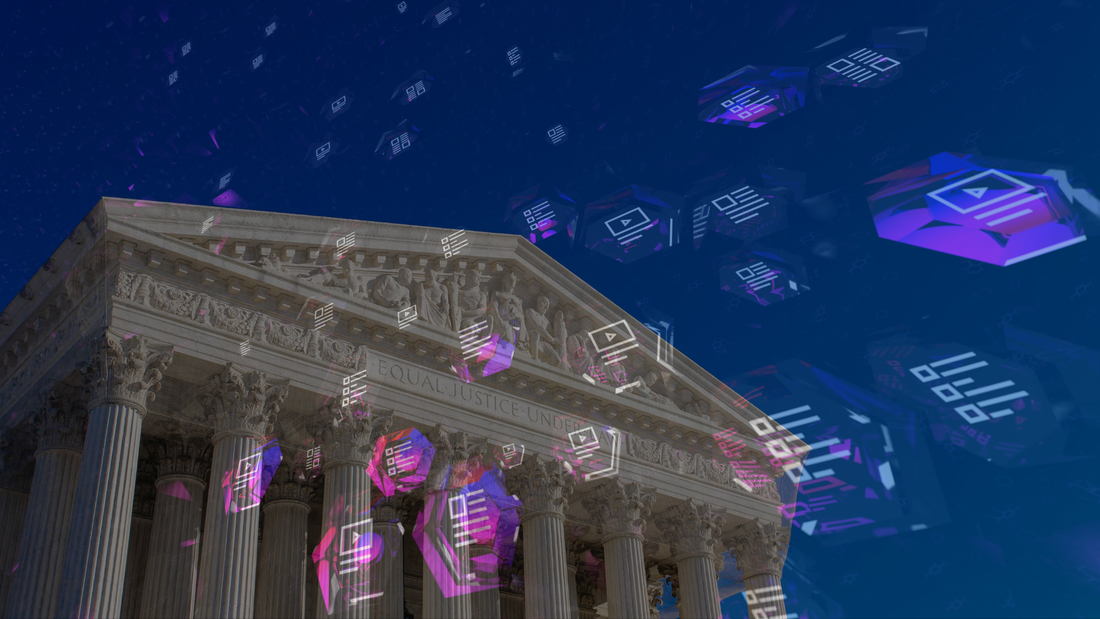


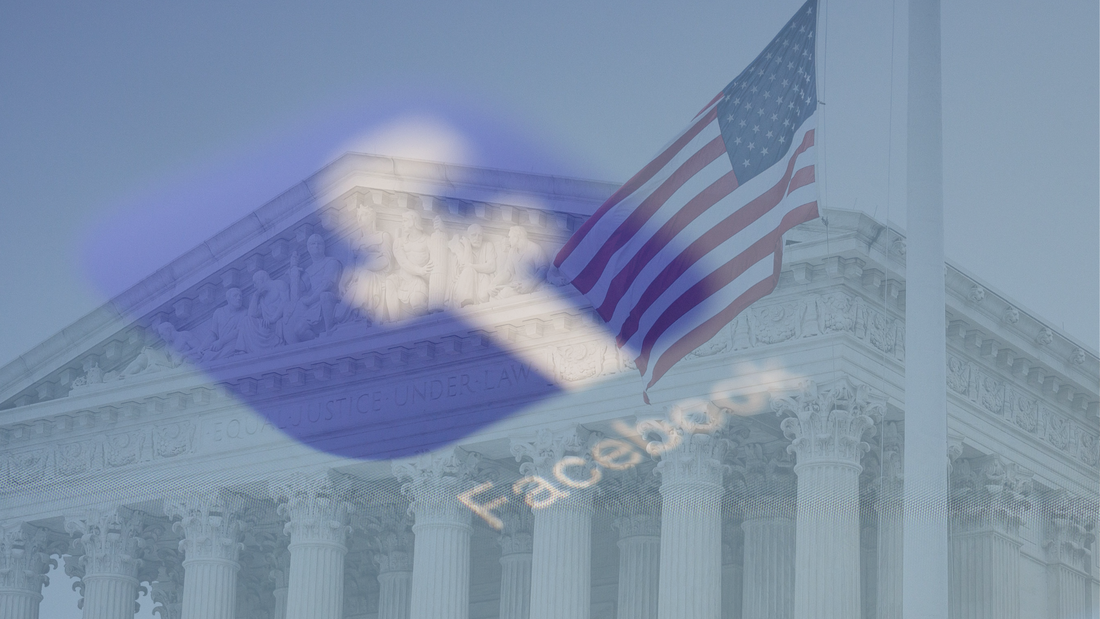




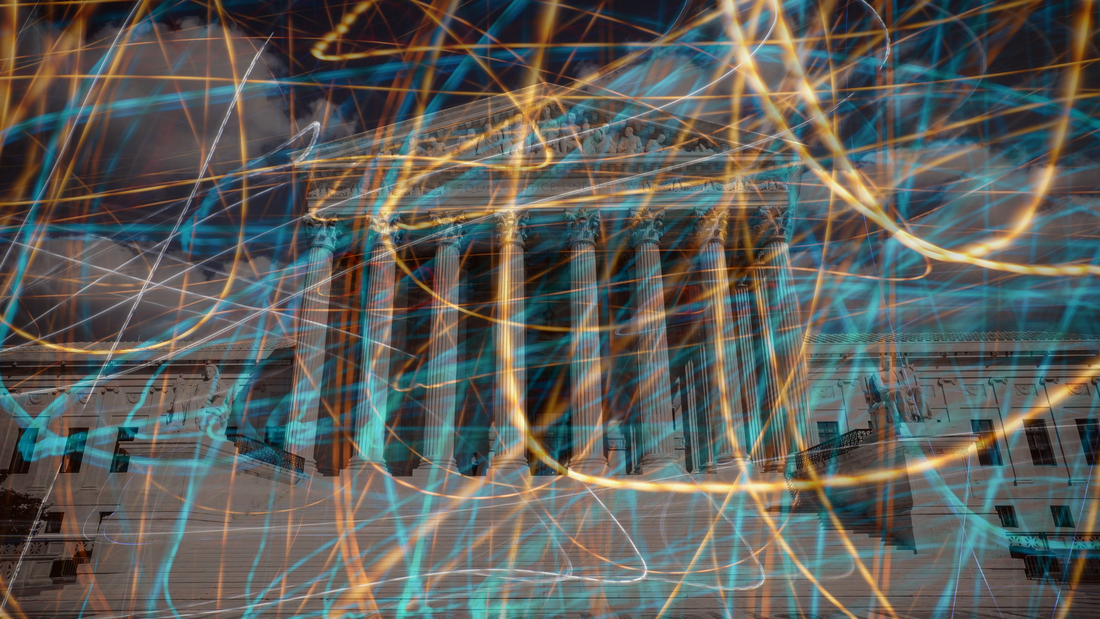

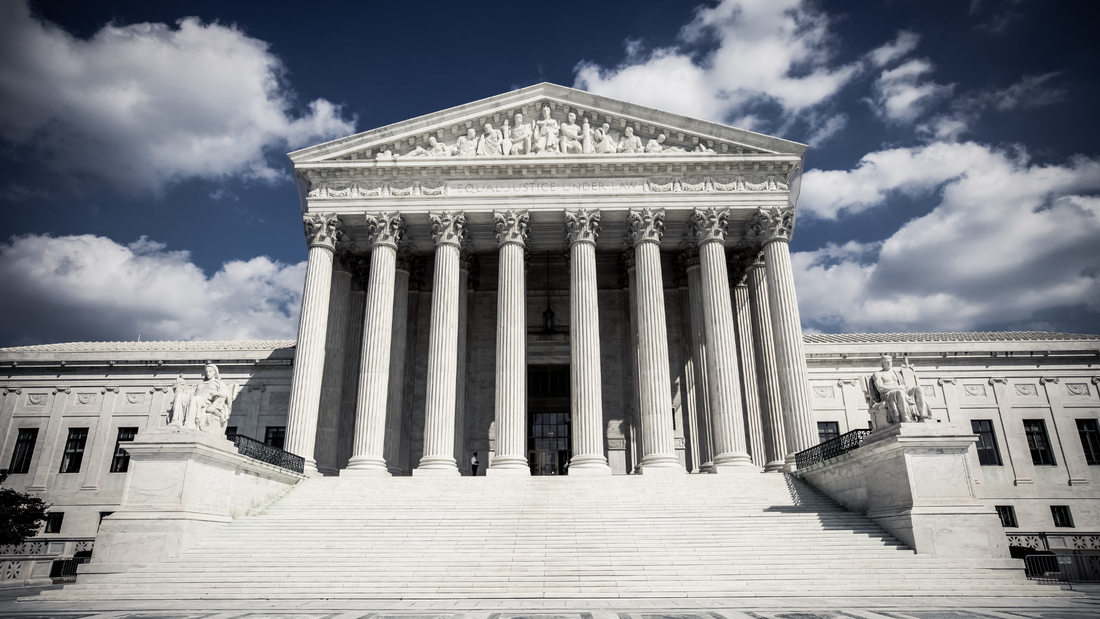


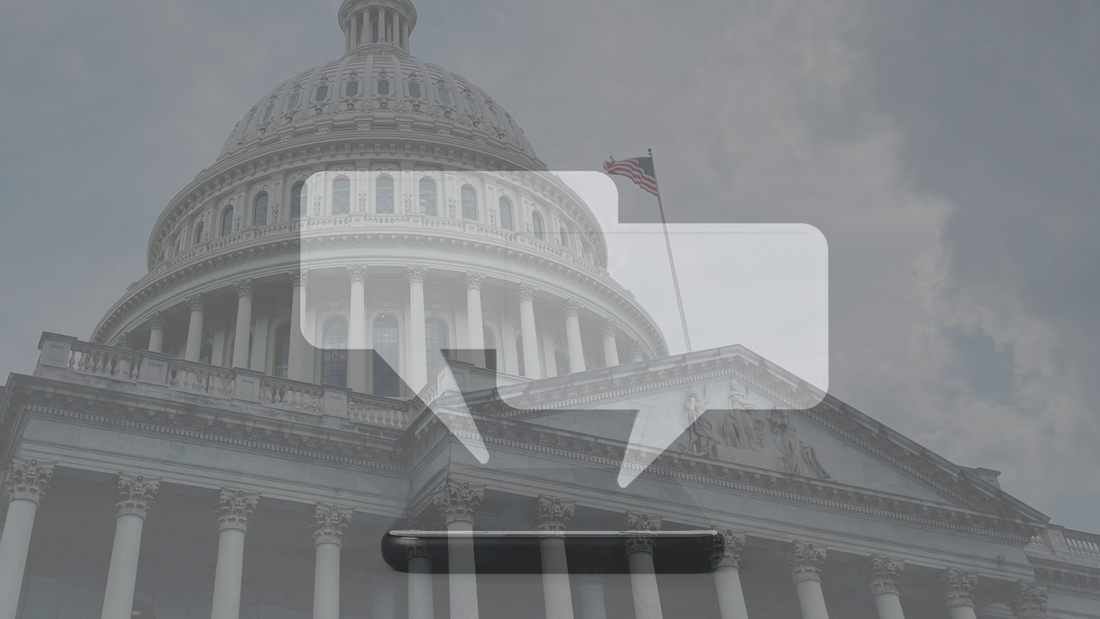
 RSS Feed
RSS Feed